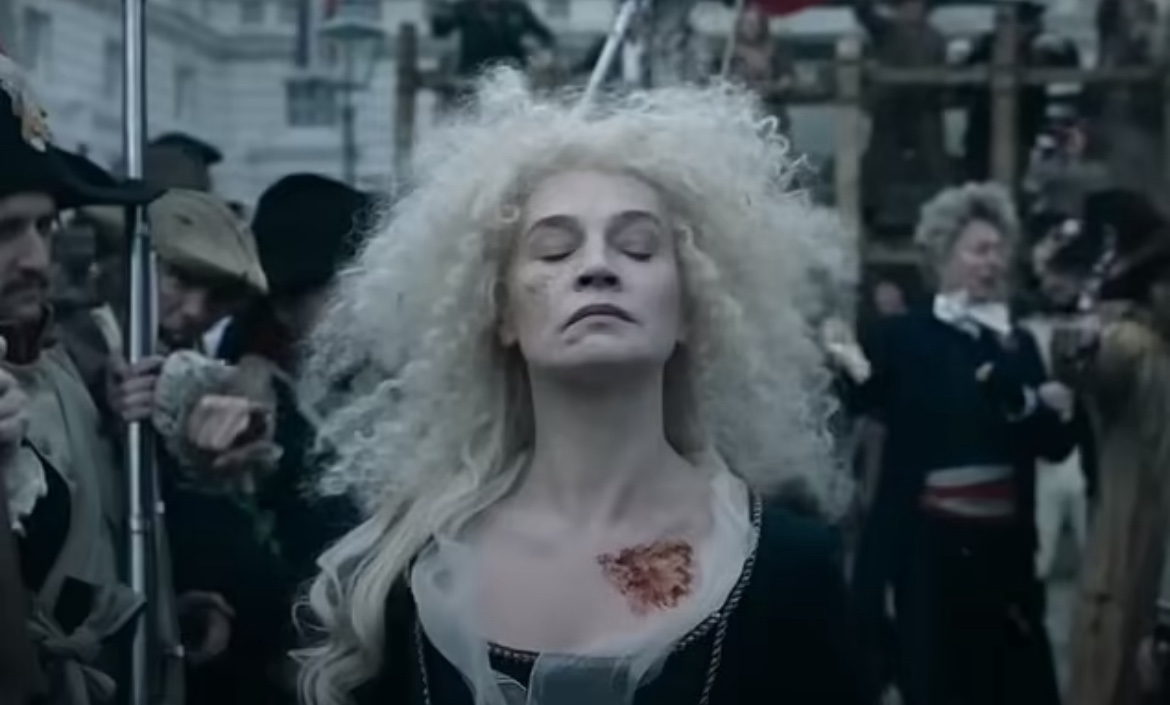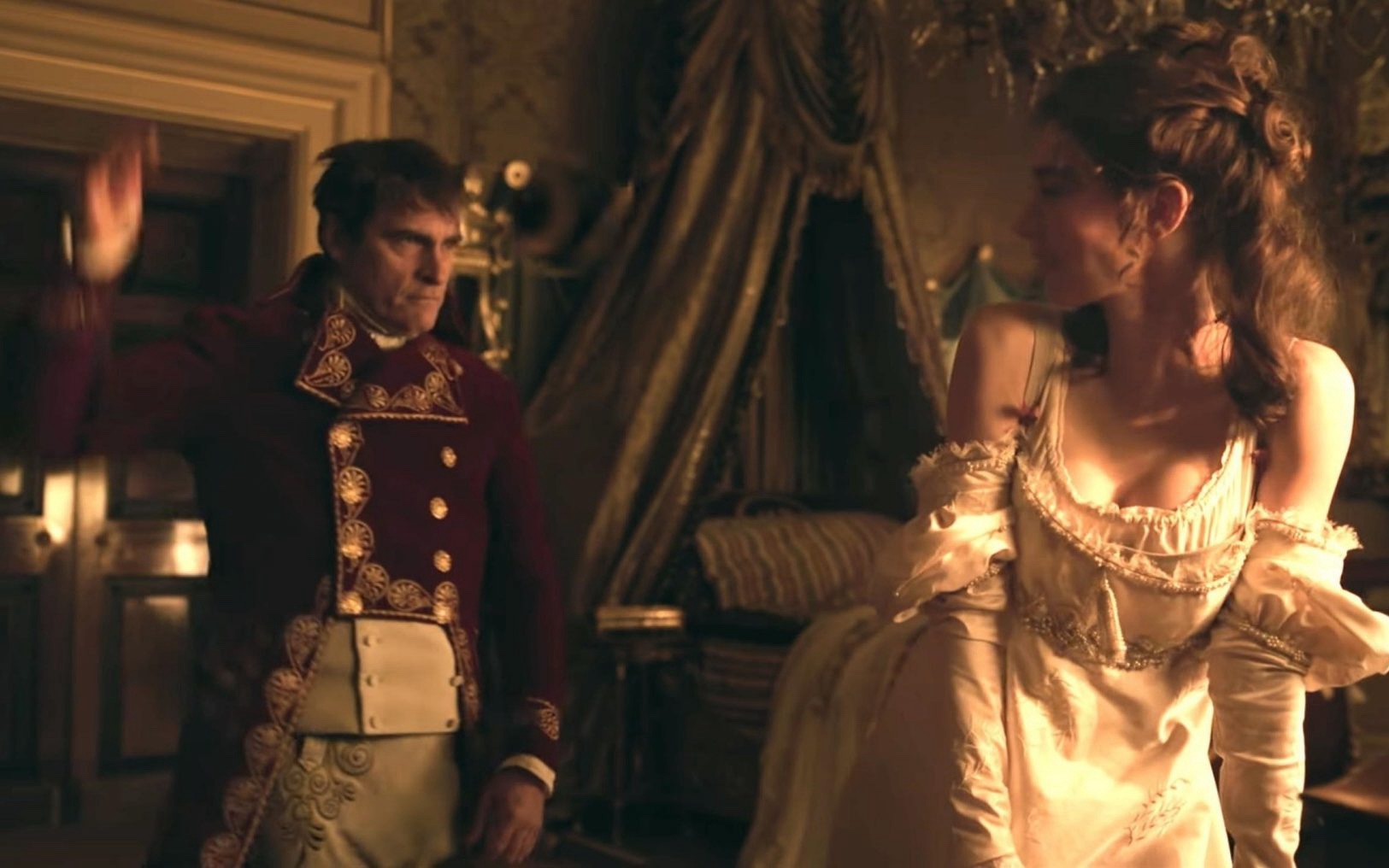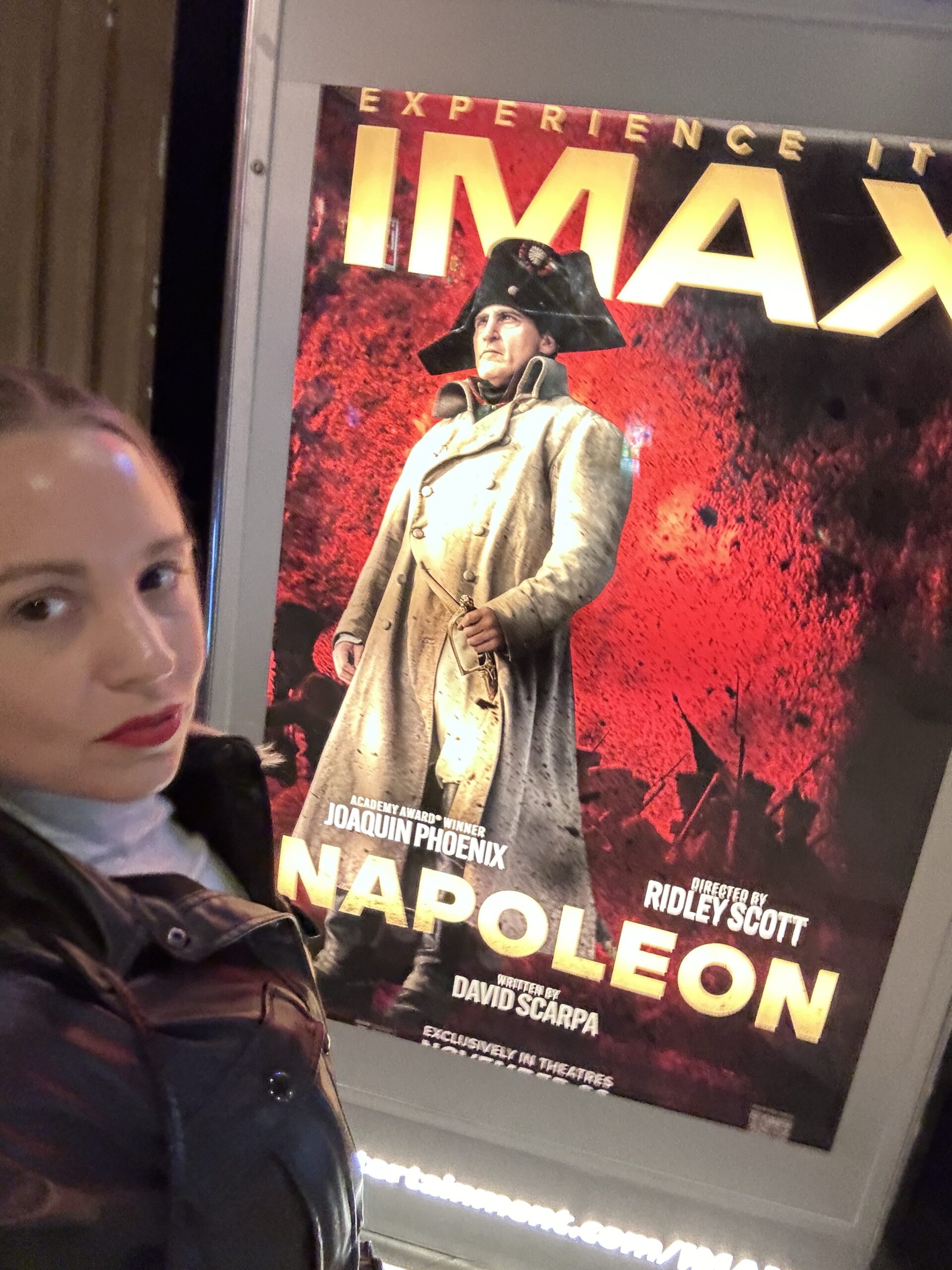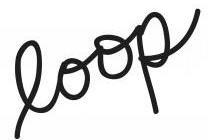“France. Army. Josephine.”
I am not a history buff by any means nor do I claim to be some sort of expert on the French Revolution, but for one reason or another I felt compelled to go see Ridley Scott’s Napoleon and write this review.
Maybe it’s because I love France and studied abroad there way back in the day, or maybe it’s because of that *one* time I went to Versailles Castle and subsequently visited Le Tomb de Napoleon Bonaparte—regardless, the movie was a beautifully and interestingly depicted story of the power of man’s ego, an unusual love, a long brutal series of battles, the hunger to rule, lots of really unnecessary deaths, and of course: a die-hard revolution lead by one of the most famous men in France played by the beloved Joaquin Phoenix.
And whether Scott’s version is 100% historically accurate I’m not so sure, as the “experts” are weighing in saying not everything is deemed true per se (it is just the movies, after all!). But even if it is not totally factual in its minor details, the film reminds you how violent history can be in the name of one’s country, along with an inevitable and weird love story to accompany an otherwise grim series of events.
Martin Phipps’ score is undeniably perfect to go with the incredible range of scenes of the era which include a late 1700s – early 1800s costume lovers’ dream, lots of coldness and darkness in the trenches, the indulgent and extravagant lifestyle of the upper class (like: I kind of want to go back and get drunk in 1793), and the bone chilling realties of war that really make you wonder: was this all really necessary? What is it really like to be out in the freezing cold for months on end with nothing but a sword and a horse? How many love letters did one write when fighting and the rain would seemingly not stop for 7 straight days?
Napoleon wastes no time setting the bloody tone: from the very first 10 minutes we see the beheading of Marie Antoinette (and yes, you see it all!) during “The Reign of Terror” in 1789; I was completely shocked actually, as I had no expectation of this movie being so surprisingly gory right off the bat, but nevertheless I was a fan as I can always appreciate a little surprise. The overall tone took me back to the Les Miserables movie right away, replicating the truly depressing state of the times.

In the crowd you see a man, Phoenix as a young Napoleon, with a different type of vision: one where justice is served, the people are taking back their freedom defending the ever-so-famous slogan of the French Revolution “Liberte, eglite, fraternite”; you can see in his eyes he has a bigger plan, one that requires a real mastermind to conquer, and what would later enfold into the Siege of Toulon where Napoleon would then save the French Republic achieving an incredible milestone for his legacy.

One night (as you might expect) during Napoleon’s conquest to save the country, he suddenly falls in love with a peculiar woman Josephine (Vanessa Kirby); their love is not what you might envision of a typical romance, but it is an interesting power structure seeing as their characters outside the relationship seem to oppose their very role in society.
The two together are actually quite humorous, as they are an awkward but loving pair in a more so platonic type of way (let’s just say the sex scenes aren’t exactly “hot”). Napoleon and Josephine remind you that at the end of the day that’s what love really is: the acceptance of one despite truly anything. Phoenix and Kirby blended together onscreen immaculately that you’d actually believe they were the Emperor and Empress of France.

As every relationship might go, problems arise and the two each had their own inner demons, but to say their love wasn’t genuine is to be argued; not all love is typical or alike and can sometimes manifest into a deeper soul-like connection that lasts forever.
The distance between Josephine and Napoleon during his long times away from home orchestrating his troops was where most of the story takes place and got me thinking how love can really make a man weak, even if he just so happens to single-handedly be leading the French Revolution’s deadliest battles in history.

Overall a serious critic could say the movie is not as perfect as it could have been, but if you are just here like me to sit back and have a good time without nitpicking every historical fact, then definitely go see this on the big screen (preferably in IMAX) and decide for yourself if you like Napoleon.





